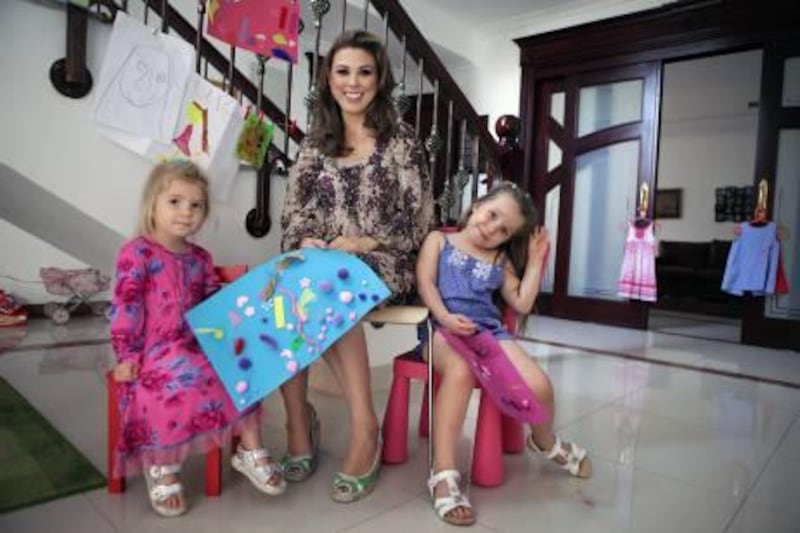ABU DHABI // Many nursery schools have too few staff, high employee turnover rates and managers who are either lax or absent, worried parents say.
Their concern follows the publication last week of the results of a government-sponsored survey showing more than 80 percent of nursery-school staff were unqualified to care for young children.
Casey Corley, a mother and former employee at three nurseries, said none of her colleagues had formal training in early-childhood education, and neither did she.
"You'll find the cheaper the nursery, the more unqualified the staff," said Ms Corley, 30, from the United States. "Then again, you'll find really good nurseries, and it will shock you that there's probably only five out of 15 staff that are qualified."
Parents who struggled to find a nursery — including Ms Corley — said problems in the country's 254 private nursery schools ran deeper than a lack of trained teachers.
Ms Corley said staff at a nursery in Mohammed Bin Zayed City left her daughter playing unattended while a supervisor talked on her phone.
Christina Atali, 42, from Cyprus, said staff at her son's nursery in Bain Al Jisreen never changed his nappy.
And Sonya Edelman, 34, from the US, said she visited a nursery in Abu Dhabi where there was one supervisor for every 10 children, all aged between 1 and 2, compared with a government-recommended ratio of one supervisor for every three children under 2. "My jaw dropped," Ms Edelman said.
Nurseries are licensed by the federal Ministry of Social Affairs, but the current nursery law, from 1983, is "very old", said Moza Al Shoomi, director of the ministry's child department. Officials plan to rectify that soon with new requirements and a nursery rating system, part of a multi-year plan to overhaul nurseries.
"From 2008 to now, they are making updates," Ms Al Shoomi said. "We want to make it better. We want to take care of children."
A draft of a new law, awaiting approval, would bring nurseries into line with international standards, Ms Al Shoomi said. As the number of nurseries increases, these changes are even more important, she said.
Parents said they would welcome more regulations. "I think from the top down, there needs to be scrutiny about what goes on," said Lisa Wells, who removed her daughter from a nursery in Abu Dhabi in September because she was concerned about high staff turnover.
Mrs Wells, 34, from Ireland, found another nursery in Abu Dhabi that she loved, the International Montessori Nursery.
"I'm paying an awful lot more money to go to Montessori, but I don't care about that," she said. "It's an awful lot better."
"I think it's up to different nurseries to make sure they've got the standards that they require, and obviously the parents vote with their feet, don't they?" said Kate Phillips, director of Humpty Dumpty Nursery.
Some parents said qualified staff were crucial. "The kids are young, but they have very specific developmental needs that need to be nurtured," Ms Edelman said.
"The main thing is teachers, and education," said Nishana Basheer, from India, mother of a boy in Musaffah.
Others said qualifications were less important than staff taking good care of their children.
"They should have first-aid and hygiene training," said Katrin Tauber, from Austria, mother of a boy in Khalidiya. "But they don't have to go to college to babysit."
Ms Phillips said she had hired workers with full qualifications who left soon after because they were unable to cope with a room full of children.
The Ministry plans to address staff standards next summer, requiring nursery workers renewing their visas to prove they have an early-childhood education qualification. Those who do not will be issued a one-year visa and told to seek training.
"They must take some courses on how to take care of a child," Ms Al Shoomi said.
Ms Phillips said that, for now, her nursery provides in-house training.
"I can understand how they're wanting to better the standard," she said. "But to better that standard, fees are going to go up a lot — because people are going to require a lot more salary."






